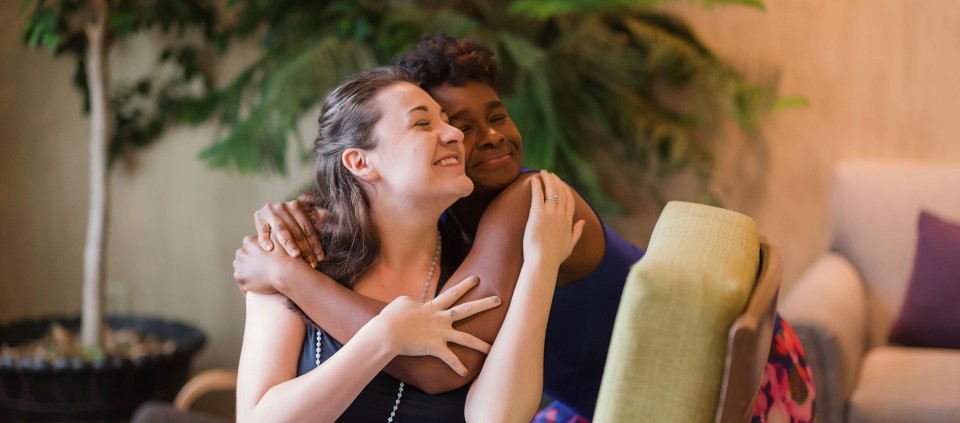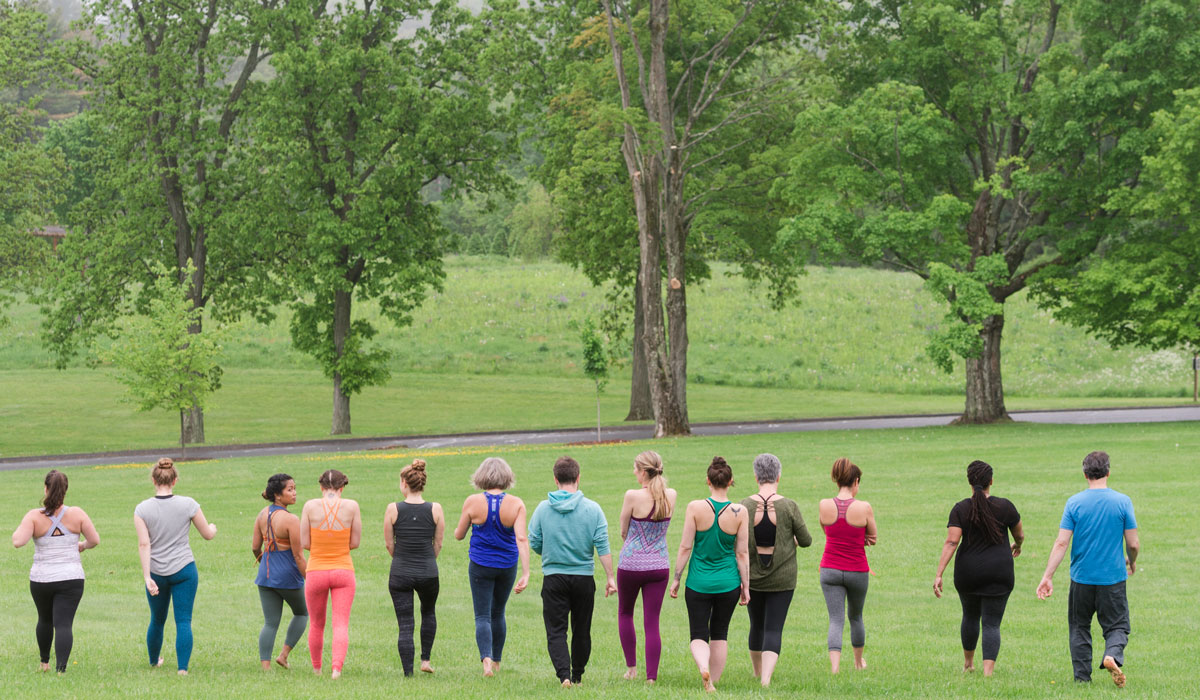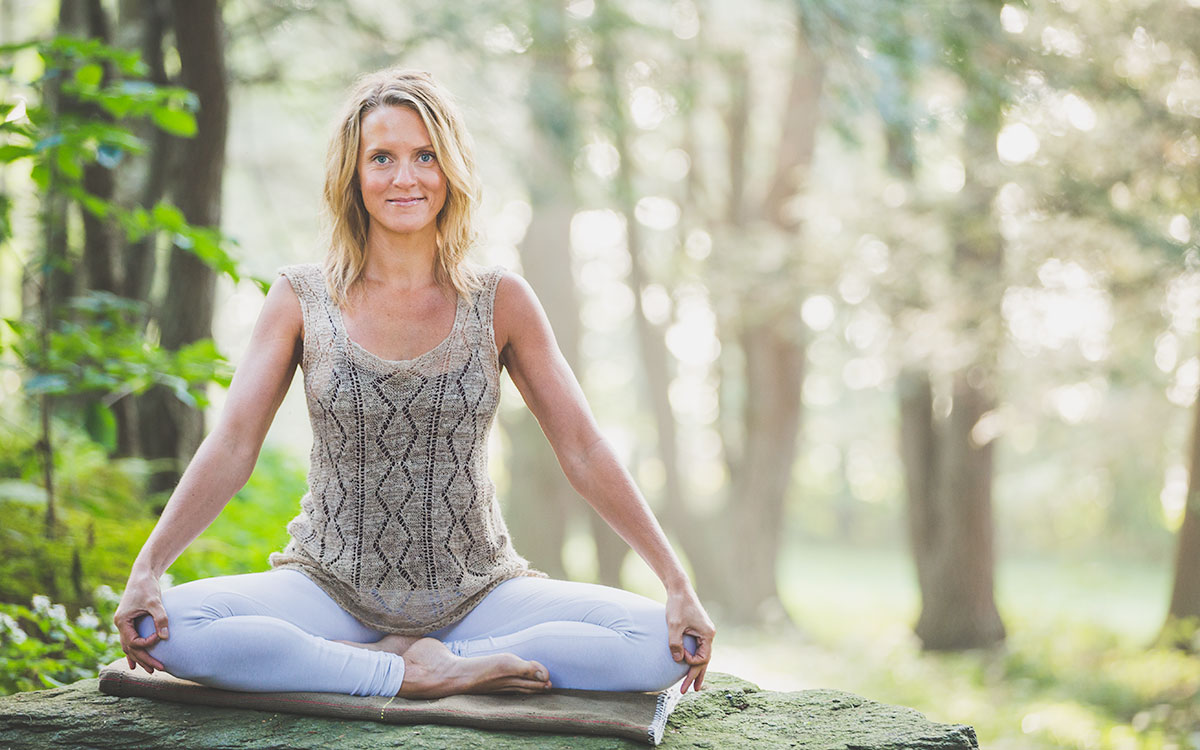Lean Into Your Community

Many years ago, I took a workshop where everyone was blindfolded and taken to a large maze out in a forest. The goal of the exercise was to find our way out as quickly as possible. Each time a person made it out, one of the facilitators would announce their escape to everybody else: “Nathan is out of the maze,” “Susan is out of the maze.”
I was pretty competitive at that time in my life, so I immediately decided that I was going to be the first one out of that maze. We put our blindfolds on, entered the maze, and—within less than a minute—I heard the announcement, “Aubrey is out of the maze.” Wait, what? How had she gotten out so fast? I took a breath and refocused. Time went on, and I didn’t seem any closer to finding my way out. One by one, I heard, “Mark is out of the maze. Todd is out of the maze. Jillian is out of the maze.” I couldn’t figure out why I wasn’t getting out of this maze, and why everybody else had gotten out so easily. As each person got out of the maze, I found myself more and more frustrated. I could hear people talking, yet I was more interested in getting myself out than listening to what they were saying. The facilitators came over to me and asked a number of times, “Coby, how are you doing?” My response was always, “I’m fine, please leave me alone, I’m trying to get out of the maze.”
Twenty minutes went by; 30 minutes, an hour. By this time, everybody in the group was cheering me on because it was clear that I was the only person left in the maze. Finally, one of the facilitators came up to me and asked again, “Coby, how’s it going?” I turned to him and said, “I don’t know. I guess I need help.” And the next words I heard were, “Coby is out of the maze.”
It turned out that the maze was not a maze at all—it was a totally enclosed course with no exit, unless you asked for help. In that moment, I realized how often I’d been stuck in the maze of life, stuck in a riptide, and forgetting that the wide-open door was right there, if I only reached out and asked someone for help.
Is going at it alone always the best use of your energy? My guess is, probably not. You don’t need to do it all. Just because you can do everything doesn’t mean you need to do everything. See what happens when you let yourself lean into community, lean into family, lean into your tribe.
You are never alone in the maze. While you are building your community, look for the people you know you could ask for help. In reality, there are many resources present in every community that could offer support, like therapists, community centers, food banks, or simply opening yourself up to a person sitting next to you. Your community can include people who can provide a different perspective or different tools to support you in the moments when you need help. In essence, a community can be a toolbox of resources.
Are You in the Maze?
- Where are you stuck in the maze?
- What could potentially shift if you asked for support?
- What would it be like to ask for help?
- Who could you ask for help?
- When is a time you supported someone else to get out of the maze? What was the impact and value of supporting someone else?
Just like there will be moments when you will need to ask for help, to be a contributing member of a community means that you will also be called upon to help others. Showing up for others is a small shift that can deepen your connections within the community. And being there for others is a building block for creating trust: when we are there for one another in moments of need as well as celebration, we can experience the feeling of fully belonging, and that we matter. An aspect of yoga is being of service, and the gift is knowing that you can support others.
Create Community
To create community, you’re invited to put yourself out there.
- Put yourself in new social experiments. You might need to stretch yourself in places that don’t seem to fit your authentic self for the sake of expanding and simply enjoying the company of those you wouldn’t typically interact with. By doing this, your worldview begins to expand, and the world becomes a more intimate and accessible place. Consider dance classes, art classes, yoga classes at a different studio; join a master’s swim team; or volunteer.
- Commit to talking to three strangers a day. You never know who you will meet—you might find a new best friend.
- Have a meal with someone at work you don’t typically eat with, and allow the conversation to begin with curiosity about them.
- Leave your phone at home to create space for more connections. You’ll be amazed at how much more capacity you have to pay attention to the world around you. That’s where you’ll see those opportunities to talk to people, help others, and recognize your impact.
- Take time to share what you value in others. Tell people what you see in them—the good stuff—and make sure you are being sincere! When people feel seen, they are usually more open to connection.
Excerpted from One Degree Revolution: How the Wisdom of Yoga Inspires Small Shifts That Lead to Big Changes, © 2020 by Coby Kozlowski.
Coby Kozlowski, MA, E-RYT, is a faculty member for the Kripalu School of Yoga and author of One Degree Revolution: How the Wisdom of Yoga Inspires Small Sifts That Lead to Big Changes.
Full Bio and Programs
